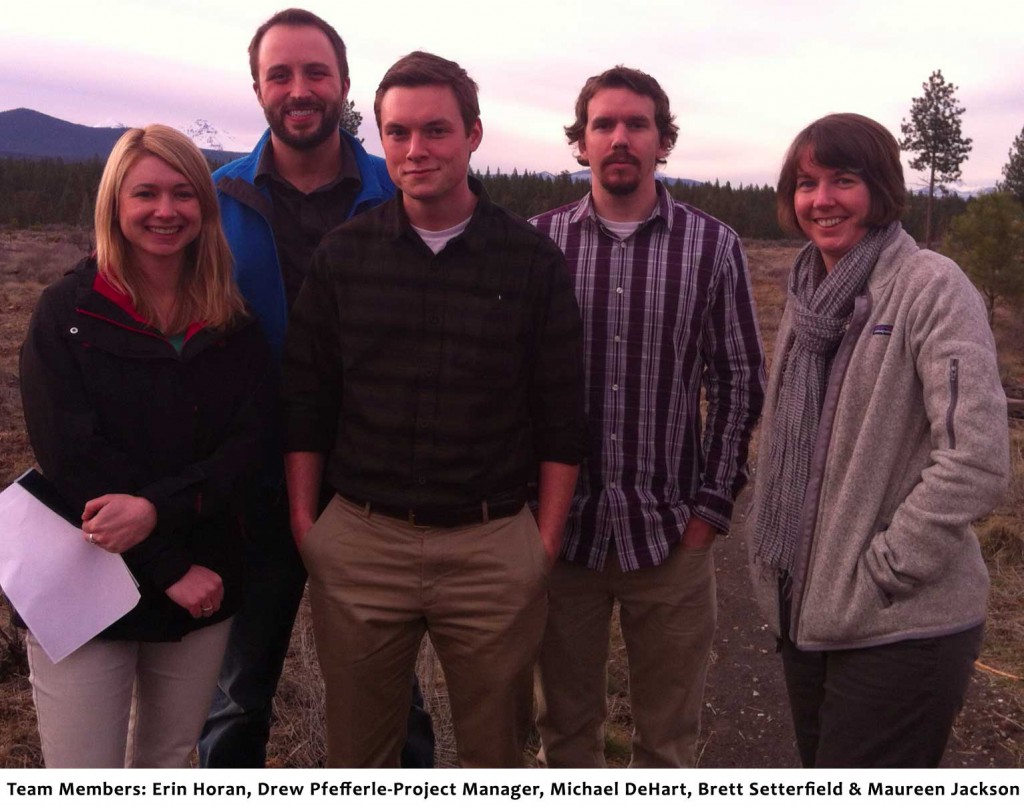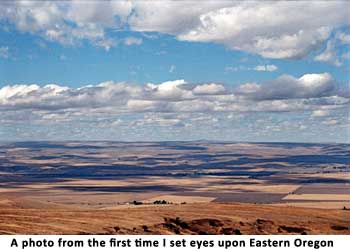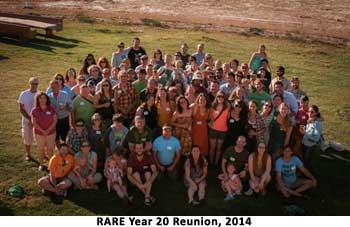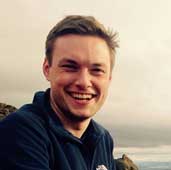 The Oregon Partnership for Disaster Resilience ‘Deschutes Natural Hazards Code Review Team’ (catchy name, right?) will be spending the next several months reviewing Deschutes County codes, evaluating case studies, compiling information regarding relevant programs, and establishing best practices for mitigating natural hazards that affect Deschutes County. When put this way, the scope of work seems relatively predictable and straightforward. However, as I discovered in 11 months with the RARE AmeriCorps Program, my team members and I are due to undergo personal growth in potentially unpredictable ways.
The Oregon Partnership for Disaster Resilience ‘Deschutes Natural Hazards Code Review Team’ (catchy name, right?) will be spending the next several months reviewing Deschutes County codes, evaluating case studies, compiling information regarding relevant programs, and establishing best practices for mitigating natural hazards that affect Deschutes County. When put this way, the scope of work seems relatively predictable and straightforward. However, as I discovered in 11 months with the RARE AmeriCorps Program, my team members and I are due to undergo personal growth in potentially unpredictable ways.
I was first introduced to OPDR and CPW through the RARE AmeriCorps Program in 2013. (OPDR-Oregon Partnership for Disaster Resilience, CPW-Community Planning Workshop, and RARE-Resource Assistance for Rural Environments are three of four programs through the Community Service Center) My admission into RARE brought me from Knoxville, TN to Pendleton, OR to work alongside City of Pendleton staff in the composition of a capital improvements bond proposal. Over my 11-month term of service, I picked up skills  ranging from meeting facilitation to database management. By the time my service was complete, I had developed and managed a handful of side projects that consistently tested my capacity to learn and practice new skills on the fly.
ranging from meeting facilitation to database management. By the time my service was complete, I had developed and managed a handful of side projects that consistently tested my capacity to learn and practice new skills on the fly.
Having never lived anywhere other than Eastern Tennessee (heck, I had never even crossed the Mississippi River!), moving to rural Oregon after graduation necessitated an openness to new experiences, new responsibilities, and, most importantly, new perspectives. Without an established social network, I learned quickly to lean on and learn from what we fondly call our ‘RARE Family.’ Though my peers were scattered throughout the vastness of rural Oregon, we forged lasting bonds through shared perspective.
A year removed from my service in Pendleton, I feel as much a part of the RARE family as ever; I can approach my RARE family with issues personal or professional in nature with an expectation of a listening ear or genuine advice. It’s this mentality I hope to foster both in my group and across other working groups during my time with the CPW.
 Given that each group of participants in the CPW class are working on a discrete and unique projects, I believe there is no reason we should feel isolated from one another. The simple fact that each group are working on such different projects presents a distinct opportunity to walk away from this hands-on learning experience with, at the very least, a conversational understanding of disaster mitigation, parks planning, economic development, historic preservation, and micro-villages.
Given that each group of participants in the CPW class are working on a discrete and unique projects, I believe there is no reason we should feel isolated from one another. The simple fact that each group are working on such different projects presents a distinct opportunity to walk away from this hands-on learning experience with, at the very least, a conversational understanding of disaster mitigation, parks planning, economic development, historic preservation, and micro-villages.
“You are your own best resource.” was a motto uttered early and often during my RARE orientation, and it stuck with me in a couple of ways. Not only does it imply the power of dedicated self-reliance, but I also took it as a group address- “We are our own best resource.”
Each group project through CPW and OPDR comes along with a degree of uncertainty, either due to the inherent nature of service learning, changes in scope of work, or differences in working styles. From what I’ve found, the key is to embrace the unpredictability, be willing to learn more than you had originally planned, and use your peers as a source for perspective when things look blurry.
 About the author: Michael DeHart is a first-year Masters candidate in Community and Regional Planning. After receiving a Bachelor of Science in Ecology and Evolutionary Biology, Michael moved to Oregon as a participant in the RARE AmeriCorps program. Upon completion of his masters’ degree, Michael plans to combine his scientific background with his planning degree as an environmental planner. When he’s not busy with coursework or researching natural hazard mitigation strategies, you can probably find Michael fooling with a camera on Spencer Butte or road tripping around rural Oregon.
About the author: Michael DeHart is a first-year Masters candidate in Community and Regional Planning. After receiving a Bachelor of Science in Ecology and Evolutionary Biology, Michael moved to Oregon as a participant in the RARE AmeriCorps program. Upon completion of his masters’ degree, Michael plans to combine his scientific background with his planning degree as an environmental planner. When he’s not busy with coursework or researching natural hazard mitigation strategies, you can probably find Michael fooling with a camera on Spencer Butte or road tripping around rural Oregon.
